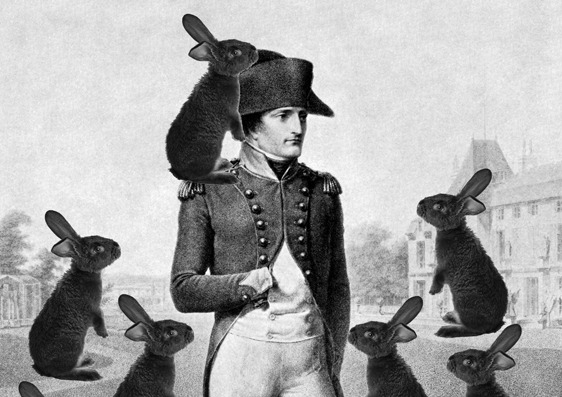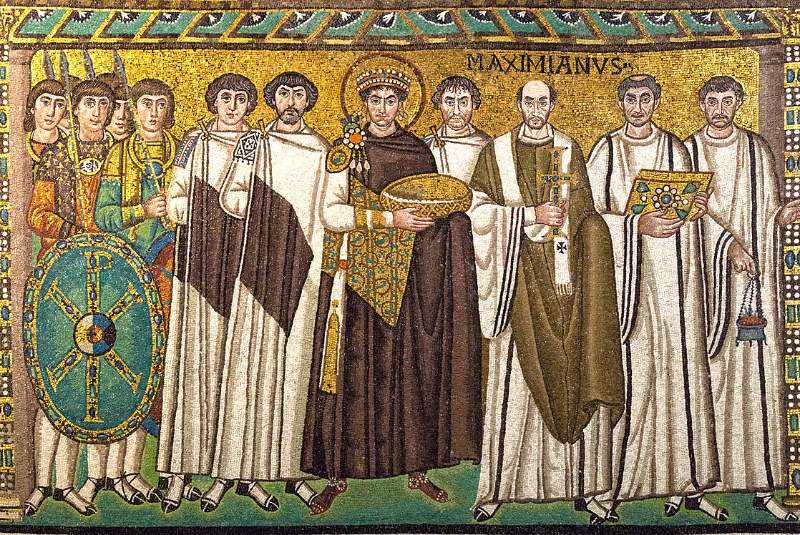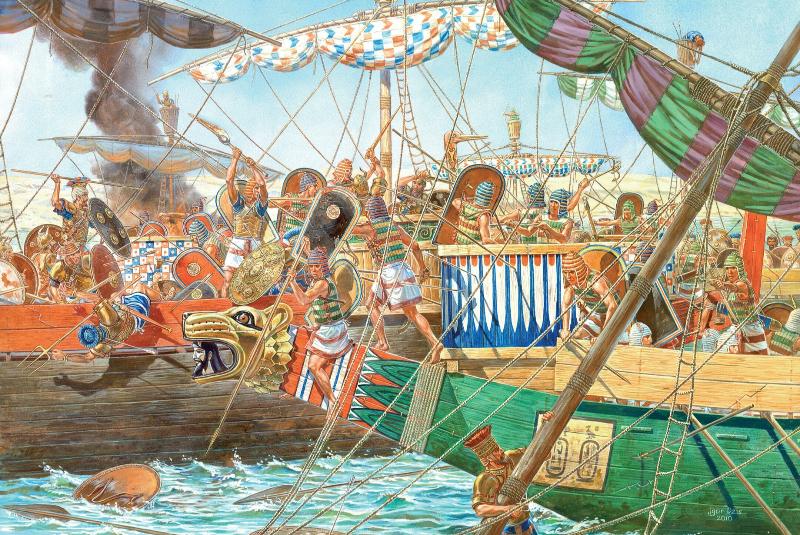When we think of Napoleon Bonaparte, images of grand battles, strategic genius, and the reshaping of European borders come to mind. As a towering historical figure, he left an indelible mark on the world stage. But amidst the many tales of triumph and strategic ingenuity, there lies an often-overlooked story that adds a humorous twist to the legendary emperor’s legacy—a tale involving not enemy soldiers or grand coalitions but a seemingly harmless foe: rabbits.

In the annals of military history, one would scarcely expect to find an episode where the great Napoleon, accustomed to commanding vast armies across the diverse terrains of Europe, met his match in the form of these fluffy creatures. Yet, in 1807, in the aftermath of the Treaty of Tilsit, the unexpected happened. Napoleon, fresh from a significant diplomatic triumph, wished to engage in a grandiose rabbit hunt—a leisure activity befitting his stature.
The task of orchestrating this hunt fell to Alexandre Berthier, Napoleon’s Chief of Staff, who was as competent in logistical planning for military campaigns as he was, it would seem, utterly inept at arranging a rabbit hunt. The instructions were clear: it was to be a hunt like no other, a demonstration of the opulence and power that France had attained under Napoleon's rule. Berthier, intent on delivering the spectacle that was expected, set about gathering what has become, in storytelling, a legendary number of rabbits.
The accounts of the day vary, with some claiming hundreds while others speak of thousands of rabbits. But what all stories agree upon is that there was an extraordinary assembly of bunnies prepared for what was supposed to be an amusing diversion for the emperor and his officers.
What followed was an event that would have been humorous if it hadn't been so utterly surreal. When the rabbits were released, the scene set for a grand chase, the unthinkable occurred. The rabbits, instead of scattering into the woods and fields, displaying the instinctual fear of their wild brethren, turned their collective furry might towards the emperor and his party.
The "great bunny war," as it has whimsically been termed by some, commenced not with the thunder of cannons, but with the pitter-patter of tiny paws against the soft earth. The emperor of France, the man whose name was synonymous with military conquest, found himself besieged by a swarm of rabbits. They bounded not away into the safety of the underbrush but towards the very epicenter of power, toward Napoleon himself.
One could perhaps imagine the first moments of the assault, as waves of rabbits surged forward. The initial laughter and mild confusion among the emperor’s retinue surely gave way to disbelief as the furry mass continued its relentless advance. It wasn't long before the situation escalated from amusing to chaotic. The rabbits, in their domesticated naivety, saw not the conqueror of Europe but a source of sustenance, the bringers of food to which they had become accustomed.
The great retreat of Napoleon from this furry fray was undignified, to say the least. The man who had strategically withdrawn from the fields of battle against the mightiest armies now found himself retreating in a hasty and bewildered fashion from a fluffy tide of relentless rabbits. The emperor's stately escape in his imperial coach was as much a concession of defeat as any he had ever handed to his human adversaries.
So how did such a peculiar event come to pass? At the heart of this comedic misadventure was Berthier's critical oversight. Instead of procuring wild hares, which would naturally flee at the sight of humans, he sourced tame rabbits from local farmers. These rabbits, habituated to the presence of humans, mistook Napoleon and his men for their usual caretakers—their "lettuce delivery men," if you will.
This incident may appear as nothing more than a humorous footnote in the life of a historical giant. Yet, it serves as a potent reminder of the unpredictability of life and the humility that comes with it. No matter how powerful one may become, how revered or feared, there is always room for the unexpected, for the universe to remind us of our inherent fallibility.
Napoleon's life was filled with extraordinary achievements and dramatic failures. His military campaigns changed the face of warfare and his political maneuvers reshaped the geopolitical landscape of his time. However, it is perhaps in these small, bizarre moments of human experience that we can find a more relatable and endearing connection to such legendary figures.
To fully grasp the significance of the rabbit incident, we must delve deeper into the context of Napoleon's life and era. The year 1807 was a pinnacle of his power. The Treaty of Tilsit had just been signed, sealing the uneasy peace between France, Russia, and Prussia. This agreement had far-reaching consequences, altering the balance of power in Europe and setting the stage for Napoleon's later campaigns.
Yet, within this grand historical narrative, the rabbit hunt stands out as an allegory for the unpredictability of power and the folly of underestimating even the smallest adversary. It reflects the character of Napoleon himself—his penchant for grandiosity, his desire for control, and his occasional lapses in judgment. It is in these human flaws and quirks that we often find the most profound insights into historical figures, beyond their public personas and into the complexities of their characters.
The rabbit debacle is also a testament to the challenges of leadership. Napoleon, a master at the art of war, faced the same challenges as any leader: the reliance on subordinates, the necessity of trust, and the potential for unexpected outcomes. Berthier’s mistake was a failure of execution, a comical misjudgment, but it also highlighted the limitations of control. Even the most meticulous plans can go awry, and leaders must adapt to circumstances beyond their expectation.
Furthermore, this story allows us to examine the human element of history. Too often, the past is recounted only through its grandest events—battles won, treaties signed, territories conquered. Yet, it is in the daily lives, the personal moments, and yes, even the mishaps, that we see history come to life. The rabbit hunt, in all its absurdity, brings a touch of humanity to the larger-than-life figure of Napoleon.
In the broader sweep of his life, the rabbit incident was but a minor episode, yet it is reflective of the whimsical hand of fate. Napoleon, who had so often bent fortune to his will, found himself at the mercy of chance and happenstance. It is a reminder that history is not just the sum of its grandest narratives but also a tapestry woven with the most unexpected and mundane threads.
As we continue to explore the facets of Napoleon's life, from his rise to power to his ultimate exile, we can appreciate the complexity of the man and the era he defined. The rabbit hunt, with its absurdity and unexpectedness, serves as a perfect counterpoint to the often solemn and grandiose accounts of history. It allows us to see the past not just as a series of monumental events but as a collection of human stories—some grand, some trivial, and some utterly ridiculous.
In the end, the story of Napoleon and the rabbits is more than just an amusing anecdote. It is a narrative that humanizes a legend, provides a unique perspective on history, and offers a light-hearted lesson on the unpredictability of life. It reminds us that history is not merely a record of the past but a reflection of the ever-changing human condition.




